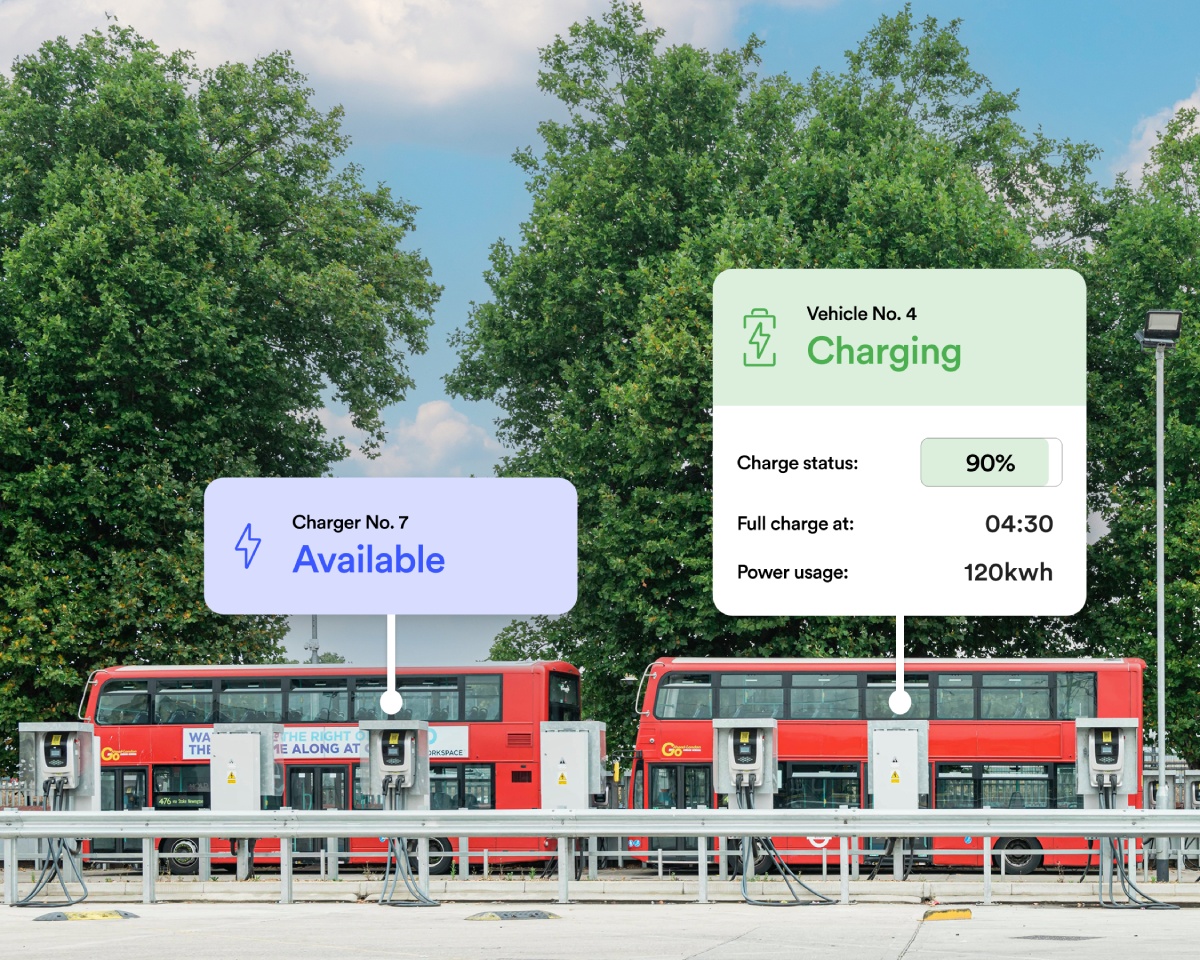Blog
Accelerating Fleet Electrification with a Platform-Based Approach
By Charlie Jardine, Founder & President at EO Charging
Last year marked one of the hottest summers on record, with Death Valley in California reaching a blistering 56.7°C. The devastating effects of climate change—widespread wildfires, prolonged droughts and record-breaking heatwaves—are becoming impossible to ignore. As the urgency to reduce global emissions intensifies, the spotlight is increasingly falling on the transport sector, which is responsible for nearly a quarter of emissions worldwide. Road transport alone makes up 74% of those emissions, with commercial vehicles—such as vans, trucks and buses—being the most significant contributors.
While the shift to electric vehicles (EVs) is well underway in the passenger car market, with over 40 million EV registrations globally in 2023, the commercial sector still lags behind. According to a report by Accenture, 54% of business leaders plan to electrify their fleets by 2030. However, many are still hesitant due to perceived barriers related to cost, complexity and reliability. Concerns around power outages, connectivity issues and hardware failures are making fleet operators question whether electrification is truly viable—particularly in environments where uptime is mission-critical.
One of the key reasons early adopters struggled to achieve reliable operations is that they focused too narrowly on the hardware. In contrast, successful fleet operators have taken inspiration from the IT world—embracing a platform-based approach to electrification. Rather than relying on disconnected point solutions, this approach integrates reliable hardware, intelligent software and dedicated support services into one unified system.

The result? Uptime rates exceeding 99.5%—a level of performance that’s essential when vehicles need to be charged and ready every single day.
At the heart of this platform-based approach is a robust infrastructure built on open standards such as OCPP (Open Charge Point Protocol) and ISO 15118. These standards ensure that charging hardware can reliably communicate with vehicles and the back end charging station management system (CSMS), providing the foundation for secure and seamless operations.
Layered on top is a CSMS that allows operators to remotely configure, monitor and manage chargers through a centralised dashboard. But to meet the demands of commercial use, an additional layer of resilience is needed. This is where self-healing middleware comes in—software that continuously monitors system performance and automatically restores functionality if faults are detected. Coupled with 24/7 human support, this ensures a truly commercial-grade solution.

More than just ensuring reliability, a well-designed charge platform can unlock additional value for businesses. When integrated with vehicle telematics, energy management systems or mobility service providers (eMSPs), the platform becomes a dynamic tool for operational efficiency and cost savings.
As EV fleets grow, managing energy usage becomes a priority. Fleet operators are evolving into large-scale energy consumers, and without smart management, charging can strain the grid or lead to costly peak usage fees. Platform software can automate time-of-use charging, balance loads across multiple sites and even participate in flexibility services—allowing businesses to reduce costs and avoid outages.
There’s also significant opportunity in infrastructure monetisation. As access to charging becomes more sought after, businesses with existing infrastructure can offer services to employees, customers or the public. By introducing reservation systems, usage tracking or loyalty programmes, businesses can generate new revenue streams while improving customer experience. Infrastructure can also be shared with partners or other commercial fleets, turning underutilised assets into collaborative, profit-generating tools.
Ultimately, fleet electrification isn’t just a technological shift—it’s an opportunity to digitally transform how fleets operate. With government mandates pushing for decarbonisation and the total cost of ownership for EVs becoming increasingly attractive, now is the time to move beyond isolated solutions.
By adopting a platform-based approach, fleet operators gain the resilience, intelligence and flexibility needed to scale with confidence—ensuring charge assurance today and opening doors to innovation tomorrow. For those ready to lead the transition, the platform is not just a tool—it’s the foundation of a smarter, more sustainable future.
By adopting a platform-based approach, fleet operators gain the resilience, intelligence and flexibility needed to scale with confidence—ensuring charge assurance today and opening doors to innovation tomorrow.
Charlie Jardine, Founder & President, EO Charging

Speak to an Expert
Find out more about the range of options available to businesses looking to electrify.
Contact Us